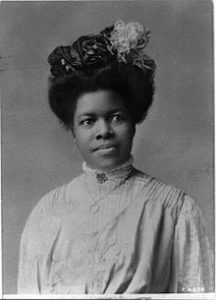Black History Month Recap 2020
Throughout Black History Month, we highlighted some of the lesser known influential Black figures in religion and social justice. Below you’ll find a compilation of the individuals we featured on social media.
Ida B. Wells
“Ida B. Wells was an African American journalist, abolitionist and feminist who led an anti-lynching crusade in the United States in the 1890s. She went on to found and become integral in groups striving for African American justice.” Learn more about Ida B. Wells here.
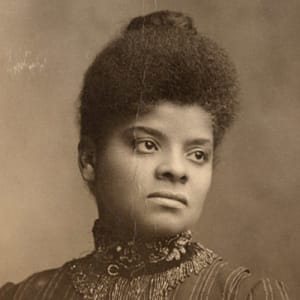
Frances Ellen Watkins Harper
Frances E.W. Harper was a poet, writer, and ardent activist in the abolitionist and women’s rights movements.
“Frances E.W. Harper made history in 1859 with the publication of “Two Offers.” With this work, she became the first African-American female writer to publish a short story.” Learn more about Frances E.W. Harper here.
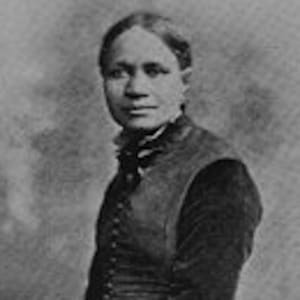
Richard Allen
Richard Allen was a minister, educator, and writer.
“Richard Allen was born into slavery on February 14, 1760. He later converted to Methodism and bought his freedom. Fed up with the treatment of African-American parishioners at the St. George Episcopal congregation, he eventually founded the first national black church in the United States, the African Methodist Episcopal Church. He was also an activist and abolitionist whose ardent writings would inspire future visionaries.” Learn more about Richard Allen here.
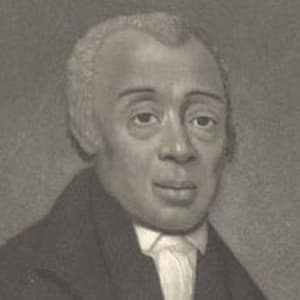
Bayard Rustin
“Bayard Rustin was born in West Chester, Pennsylvania, on March 17, 1912. He moved to New York in the 1930s and was involved in pacifist groups and early civil rights protests. Combining non-violent resistance with organizational skills, he was a key adviser to Martin Luther King Jr. in the 1960s. Though he was arrested several times for his own civil disobedience and open homosexuality, he continued to fight for equality.” Learn more about Bayard Rustin here.

Ethelred Brown
“When Ethelred was thirty-two years old, he decided to become a Unitarian minister and start a Unitarian church in Jamaica. He didn’t even know any other Unitarians, but Ethelred Brown didn’t let that stop him. He found his own way. He wrote a letter to “Any Unitarian Minister in New York City,” and he put it in the mail…” Learn more about Ethelred Brown here.
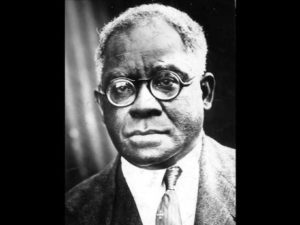
Sojourner Truth
“Truth was born into slavery but escaped with her infant daughter to freedom in 1826. She devoted her life to the abolitionist cause and helped to recruit black troops for the Union Army. Although Truth began her career as an abolitionist, the reform causes she sponsored were broad and varied, including prison reform, property rights and universal suffrage.” Learn more about Sojourner Truth here.
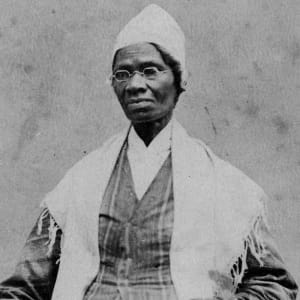
Thurgood Marshall
“Thurgood Marshall was an American lawyer who was appointed as an associate justice of the Supreme Court in 1967. He was the first African American to hold the position and served for 24 years, until 1991. Marshall studied law at Howard University. As counsel to the NAACP, he utilized the judiciary to champion equality for African Americans. In 1954, he won the Brown v. Board of Education case, in which the Supreme Court ended racial segregation in public schools.” Learn more about Thurgood Marshall here.
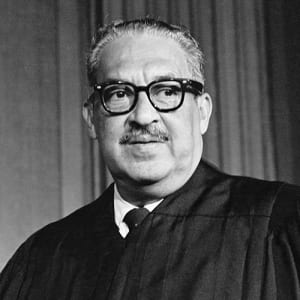
Ella Baker
“Ella Baker became one of the leading figures of the civil rights movement of the 1950s and ’60s. Following her early work for the National Association for the Advancement of Colored People, she was among the founders of Martin Luther King’s Southern Christian Leadership Conference in 1957. Three years later, she helped launch the Student Non-Violent Coordinating Committee.” Learn more about Ella Baker here.

Merle Kodo Boyd
“Merle Kodo Boyd is the first ever African-American woman to have received Dharma transmission in Zen Buddhism, as a Dharma heir of Wendy Egyoku Nakao in the White Plum Asanga. Receiving transmission in March 2006, she leads the Lincroft Zen Sangha in New Jersey (a center which she founded).” Learn more about Merle Kodo Boyd here.
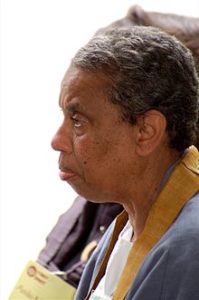
Vernon Johns
“Vernon Johns was an American minister at several black churches in the South and a pioneer in the civil rights movement…Johns was widely known in the black community across the South for his profound scholarship in the classics, his intellect and his highly controversial and outspoken sermons on race relations, which were ahead of his time.” Learn more about Vernon Johns here.
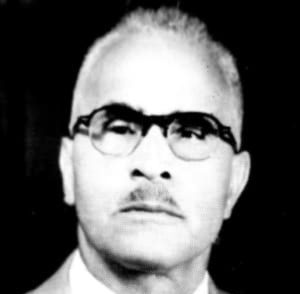
Peter Spencer
“Peter Spencer was an American freedman who in 1813 founded the Union Church of Africans in Wilmington, Delaware…Over the course of his lifetime, Spencer began 31 churches, nearly all of them with schools. He became known as the “father of the independent black church movement.”” Learn more about Peter Spencer here.
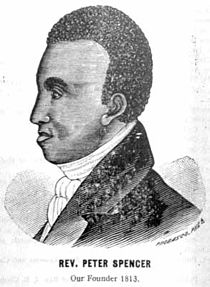
Nannie Helen Burroughs
“In 1909, she founded the National Training School for Women and Girls in Washington, DC. Burroughs’ objective was at the point of intersection between race and gender. She fought both for equal rights in races as well as furthered opportunities for women beyond the simple duties of domestic housework.” Learn more about Nannie Helen Burroughs here.
